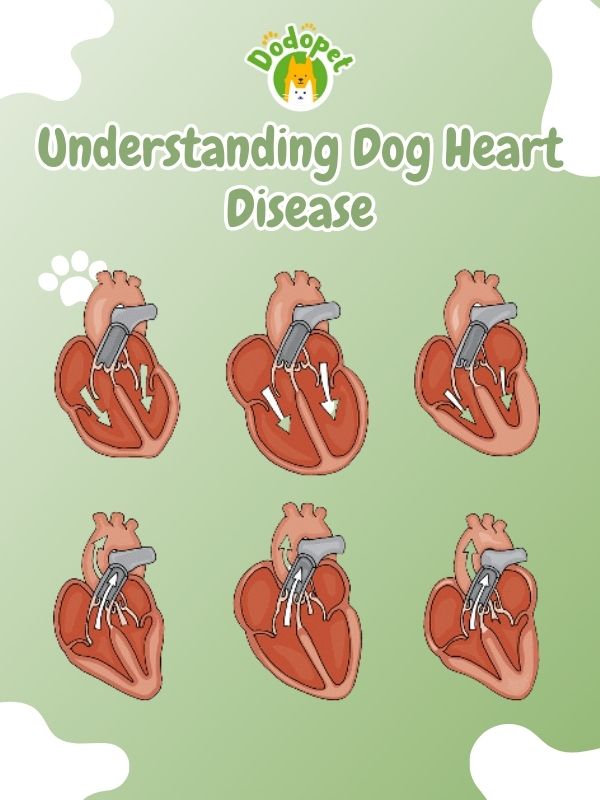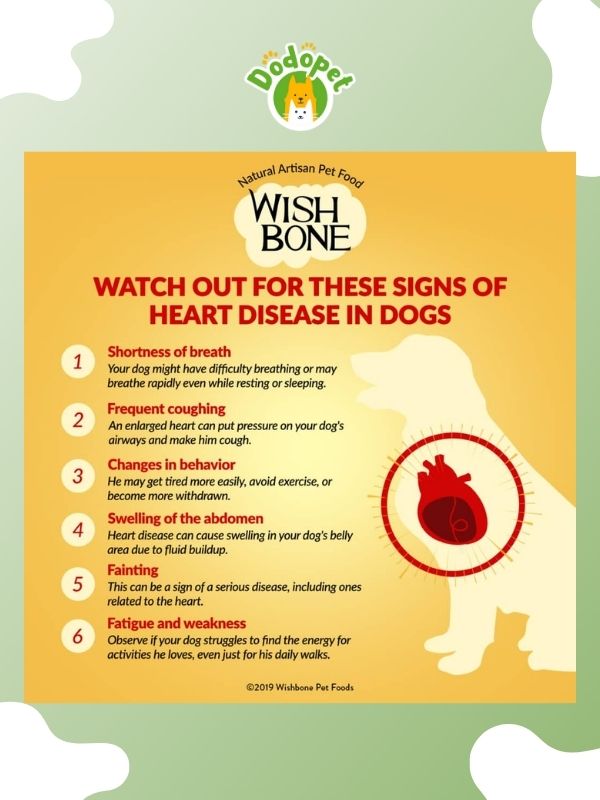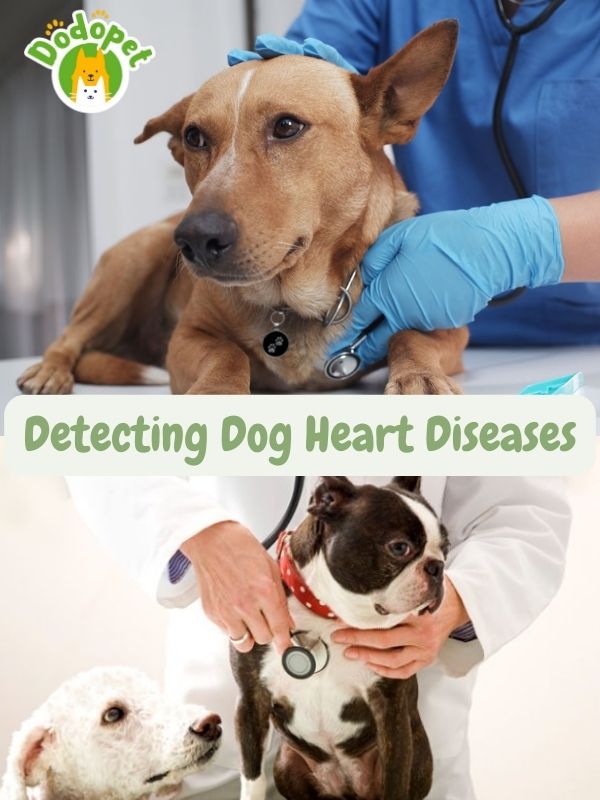Unlock the key to a healthier, happier life for your canine companion with our comprehensive guide on dog heart disease. From recognizing early warning signs to essential prevention tips, this heart-to-heart discussion delves into everything you need to know to protect your furry friend’s cardiovascular health. Join us on a journey to understand, detect, and ultimately prevent dog heart disease.
Understanding Dog Heart Disease
Understanding dog heart disease is important for pet owners as it can affect dogs of all breeds and sizes. Dog heart disease, medically known as canine cardiac disease, encompasses several conditions that impact the heart’s structure or function. Here’s an overview to help you better understand this condition:
Types of Dog Heart Disease
- Valvular Heart Disease (VHD): This is the most common type of heart disease in dogs. It typically occurs in older dogs and is often characterized by the degeneration of heart valves, particularly the mitral valve. VHD can lead to valvular insufficiency, where the valves no longer close properly, causing blood to leak backward.
- Dilated Cardiomyopathy (DCM): DCM is a condition where the heart’s chambers become enlarged and weakened, leading to decreased pumping efficiency. DCM can affect various breeds, including Doberman Pinschers, Boxers, and certain giant breeds.
- Hypertrophic Cardiomyopathy (HCM): This condition involves thickening of the heart muscle, particularly the left ventricle. HCM is seen more commonly in cats but can occur in dogs, especially in some small breeds.
What Causes Dog Heart Disease?
- Age: Many dogs with heart disease are older, although some breeds are predisposed to certain types of heart disease at a younger age.
- Breed Predisposition: Certain breeds are more prone to specific types of heart disease. For example, Cavalier King Charles Spaniels are predisposed to VHD, while DCM is more common in Doberman Pinschers.
- Genetics: Inherited factors can contribute to the development of heart disease in some breeds.

Understanding Dog Heart Disease
Common Symptoms of Dog Heart Disease
Recognizing the symptoms of dog heart disease is essential for early detection and treatment. The signs of dog heart disease can vary depending on the specific condition, but common symptoms may include:
- Coughing, especially at night or after exercise
- Difficulty breathing or rapid, labored breathing
- Fatigue or weakness
- Decreased exercise tolerance
- Fainting or collapsing
- Abdominal distension (enlarged abdomen due to fluid buildup)
- Bluish or grayish gums and tongue (a sign of poor oxygenation)

Common Symptoms of Dog Heart Disease
Preventing Dog Heart Disease
Preventing dog heart disease involves a combination of lifestyle measures, regular veterinary care, and breed-specific considerations. While some factors, such as breed predisposition and genetics, may be beyond your control, there are steps you can take to reduce the risk of heart disease in your dog. Here are some preventive measures:
- Regular Veterinary Check-ups: Schedule regular wellness exams with your veterinarian. These visits allow your vet to monitor your dog’s overall health and detect early signs of heart disease or other health issues.
- Healthy Diet: Feed your dog a balanced and high-quality diet. Discuss your dog’s specific nutritional needs with your veterinarian, as dietary requirements can vary based on age, breed, and any underlying health conditions. In some cases, your vet may recommend a specialized diet to support heart health.
- Exercise: Maintain an appropriate exercise routine for your dog’s age, breed, and overall health. Regular physical activity helps promote good cardiovascular health. However, be cautious not to overexert dogs with certain heart conditions, as excessive exercise can strain the heart.
- Weight Management: Keep your dog at a healthy weight. Obesity can put added strain on the heart and increase the risk of heart disease. Work with your veterinarian to develop a weight management plan if needed.
- Oral Hygiene: Practice good oral hygiene for your dog. As mentioned earlier, there’s a potential connection between gum disease and heart disease in dogs. Regularly brush your dog’s teeth, provide dental chews or toys, and schedule professional dental cleanings with your veterinarian.
- Reduce Stress: Minimize stressors in your dog’s environment. Chronic stress can negatively impact heart health. Create a calm and comfortable living environment for your pet.
- Avoid Secondhand Smoke: Exposure to tobacco smoke has been associated with an increased risk of heart disease in dogs. Avoid smoking around your dog, especially in enclosed spaces.
- Regular Vaccinations: Ensure that your dog receives necessary vaccinations and preventive medications to protect against heartworm disease, which can lead to heart problems if left untreated.
- Breed-Specific Considerations: If you have a breed that is predisposed to a particular type of heart disease (e.g., Cavalier King Charles Spaniels and mitral valve disease), discuss preventive measures and early screening with your veterinarian. Regular cardiac evaluations may be recommended.
- Early Intervention: If your dog does develop heart disease, early detection and treatment are crucial. Follow your veterinarian’s recommendations for managing the condition, which may include medications and lifestyle adjustments.

Preventing Dog Heart Diseases
Detecting Dog Heart Diseases
Detecting dog heart disease early is crucial for effective management and intervention. Heart disease in dogs can manifest differently depending on the specific condition, but there are several common signs and diagnostic methods that can help identify the presence of heart disease. Here are key ways to detect heart disease in dogs:
1. Regular Veterinary Check-ups:
- Schedule routine wellness exams with your veterinarian. These visits provide an opportunity for your vet to assess your dog’s overall health, listen to the heart, and detect any abnormalities.
2. Monitoring for Symptoms:
- Be vigilant for any changes in your dog’s behavior, appearance, or physical condition. Common symptoms of heart disease in dogs may include:
- Coughing, especially at night or after exercise
- Difficulty breathing or rapid, labored breathing
- Fatigue or weakness
- Decreased exercise tolerance
- Fainting or collapsing
- Abdominal distension (enlarged abdomen due to fluid buildup)
- Bluish or grayish gums and tongue (a sign of poor oxygenation)
3. Diagnostic Tests:
- If your veterinarian suspects heart disease based on physical exam findings or clinical signs, they may recommend diagnostic tests, including:
- Chest X-rays: X-rays can reveal changes in the heart’s size and shape, as well as the presence of fluid in the lungs.
- Echocardiography (Ultrasound): An echocardiogram is a non-invasive imaging technique that provides a detailed view of the heart’s structure and function, helping to diagnose conditions like valvular disease or cardiomyopathy.
- Electrocardiography (ECG or EKG): This test measures the electrical activity of the heart and can detect abnormal heart rhythms (arrhythmias) or conduction abnormalities.
- Blood Tests: Bloodwork can provide valuable information about organ function and may help identify underlying conditions that contribute to heart disease.
4. Blood Pressure Measurement:
- High blood pressure (hypertension) can be associated with certain heart conditions. Your veterinarian may measure your dog’s blood pressure as part of the diagnostic process.
5. Cardiac Biomarkers:
- Some blood tests measure specific cardiac biomarkers that can indicate heart disease, such as elevated levels of certain enzymes.
6. Holter Monitoring:
- In some cases, your veterinarian may recommend a Holter monitor, a portable device that continuously records your dog’s heart rhythm over a 24-hour period.
7. Consultation with a Cardiologist:
- If your dog’s condition is complex or requires specialized evaluation, your veterinarian may refer you to a veterinary cardiologist for further assessment and diagnostic testing.

Detecting Dog Heart Diseases
Treatment Options for Dog Heart Disease
Treatment options for dog heart disease depend on the specific type and severity of the condition. Your veterinarian will tailor the treatment plan to meet your dog’s individual needs. Here are common treatment approaches for various types of dog heart disease:
Medications
- Diuretics: Diuretic medications like furosemide help remove excess fluid from the body, reducing symptoms of congestion and fluid buildup in the lungs or abdomen.
- ACE Inhibitors: Angiotensin-converting enzyme (ACE) inhibitors, such as enalapril or benazepril, can improve heart function and reduce blood pressure.
- Beta-Blockers: Beta-blockers like atenolol or carvedilol can help manage arrhythmias (abnormal heart rhythms) and reduce the workload on the heart.
- Pimobendan: Pimobendan is a medication specifically used for dogs with dilated cardiomyopathy (DCM) or certain forms of congestive heart failure. It enhances cardiac function and can improve quality of life.
- Anticoagulants: In some cases, anticoagulant medications like aspirin or clopidogrel may be prescribed to prevent blood clots.
Lifestyle Changes for Dogs with Heart Disease
Alongside medications, certain lifestyle changes can help improve the quality of life for dogs with heart disease:
- Low-sodium diet to reduce fluid retention
- Regular exercise tailored to your dog’s condition
- Weight management to alleviate strain on the heart
- Reducing stress and anxiety
- Avoiding exposure to extreme temperatures
Surgical Interventions
In some cases, surgical interventions may be necessary to treat dog heart disease. These can include procedures such as:
- Valve repair or replacement
- Bypass surgery
- Pacemaker implantation
- Heart transplant (in rare cases)
- Angioplasty to open blocked blood vessels
Supplements
- Supplements like omega-3 fatty acids may be beneficial for some dogs with heart disease to support heart function and reduce inflammation.
Oxygen Therapy
- In severe cases, oxygen therapy may be provided to dogs with severe breathing difficulties.
Regular Monitoring
- Dogs with heart disease require ongoing monitoring by a veterinarian. This may include periodic check-ups, chest X-rays, echocardiograms, and blood tests to assess the progression of the disease and adjust treatment as needed.

Treatment Options for Dog Heart Diseases
Caring for a Dog with Heart Diseases
Caring for a dog with heart disease requires special attention and care. By following these guidelines, you can help improve your dog’s quality of life:
Provide a Low-Stress Environment
Creating a low-stress environment is crucial for dogs with heart disease. Minimize loud noises, avoid excessive physical exertion, and provide a calm and peaceful atmosphere at home.
Administer Medications as Prescribed
It is essential to administer medications as prescribed by your veterinarian. Follow the recommended dosage and schedule to ensure your dog receives the necessary treatment.
Monitor Your Dog’s Vital Signs
Regularly monitor your dog’s vital signs, such as heart rate and breathing, to track any changes or abnormalities. This information can be valuable for your veterinarian in assessing the effectiveness of the treatment plan.
Maintain a Healthy Diet
A balanced and nutritious diet is crucial for dogs with heart disease. Consult with your veterinarian to determine the best diet plan for your dog’s specific condition.
Provide Emotional Support
Dogs with heart disease may experience anxiety or stress. Provide them with emotional support and comfort to help alleviate their symptoms and improve their overall well-being.

Caring for a Dog with Heart Diseases
Conclusion
Dog heart disease is a serious condition that requires early detection, proper treatment, and ongoing care. By understanding the causes, symptoms, and prevention methods, you can take proactive steps to protect your furry friend’s heart health. Regular veterinary check-ups, a balanced diet, and a low-stress environment are key factors in preventing and managing dog heart disease.
Remember, your dog’s heart health is in your hands!









